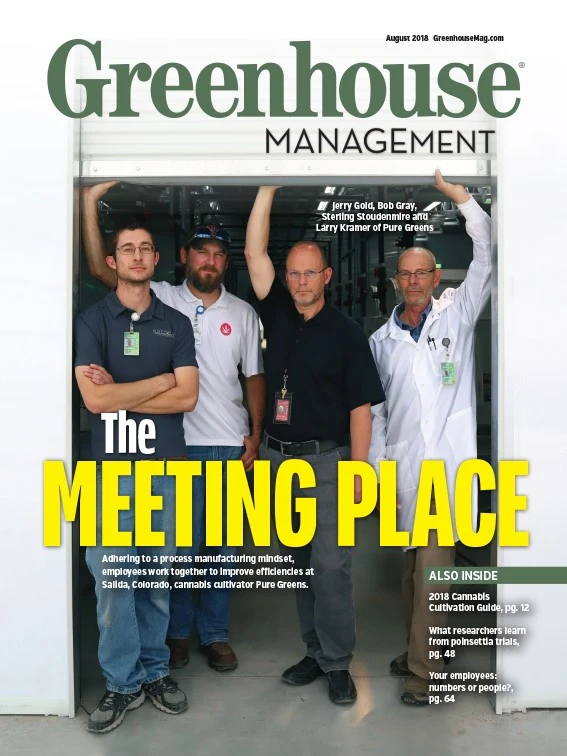With all the dust-ups happening around immigration and labor these days, it’s worth taking a moment to think about what your employees mean to you and your business. Do you feel your employees are the heartbeat of your company? Or are they more of a numbers game to you? What would you do if you elost more than 100 employees in one day? If you did, you might suddenly find yourself feeling a whole lot more personally attached to those people when they’re gone — because your business might be gone too.
This is the unfortunate situation many companies in our industry have, or may find themselves in as our current government continues to limit guest workers, limit lawful immigration, and crack down on removing those who are illegally employed. All this at a time when we don’t have enough people to fill the jobs that are available, and certainly not enough Americans who want to take the jobs we have to offer. Those of us in the agriculture, green industry, and service industries feel this pain most acutely. Anyone screaming, “no amnesty” probably doesn’t run a business in our industry, or any other that relies on immigrants. If they do, well then, bless their heart.
It seemed we’d figured out some strategies for progress on the issue of illegal immigration with NAFTA and more open trade initiatives. With improved conditions in Mexico, immigration was falling — falling to a point where we don’t have enough immigration to fill our work needs. Sure, NAFTA needed some tweaks, but such tweaks were reasonably achievable. We’ve experienced a solid economic recovery over the last seven years. But fear, isolationism and a trade-war mentality on the part of the current administration, and many American citizens, seem to be reversing those gains. It’s a shame, and shameful in many ways.
In addition to the labor pressure we all feel because of recruiting difficulties and immigration, I also hear folks expressing fear that they are losing employees, or future prospective employees, to the cannabis industry. I can’t offer any sympathy on that front, because I think when it comes to this topic we all rise and fall together. The cannabis industry has provided a unique opportunity in the mainstream green industry, from which we can all benefit. It’s time we considered both as branches of the same industry. Given the undeniable decline of people entering university programs for horticulture and growing related training, and a reluctance for many to do any sort of manual labor, we need something successful to spur interest. If cannabis can be a gateway plant for driving a new generation of enthusiastic green industry joiners, this is a good thing. I see a good opportunity for new trade schooling programs in horticulture that help us better fill our job pipeline.
Bottom line, it’s hard to hire in this industry. So, that being our reality, it’s a good time to look inward to see how we are doing with our existing employees. Are we treating them like numbers, or like people? I realize it’s not an easy job to get it right when it comes to employee relations and company culture. It’s hard enough to keep the day-to-day logistics of a company running, much less be an expert on the touchy-feely side of human relations. We all get wrapped up in administrative tasks and we all make mistakes. That said, cultivating productive and rewarding relationships with the people who work for us really should be our top priority. Especially if we need to keep those employees — and maintain a reputation worthy of good new recruits.
_fmt.png)
Creating a culture of respect and relevancy is step No. 1. I’ve always operated with the idea that personalization is important for productivity. Customizing a job to fit an employee’s interests and strengths is usually a win-win for everyone. Sure, you have jobs with very specific needs and requirements. But unless you find someone who is a good fit and feels good about doing that specific work, it’s tough to close the revolving door on that position. Tapping into what makes an employee excited about their work or makes them feel respected and useful — as well as maximizes their abilities — is a win-win for the employee and you.
Don’t forget to challenge your employees. Repetitive work is well, repetitive, and it can get demoralizing. Providing some new challenges for employees to break the routine can make them feel valued and engaged. You might also consider job-switching for production staff to give them some variety in their day-to-day and help them learn new skills.
I would never suggest getting overly involved in your employee’s personal lives or problems. But that doesn’t mean you can’t show empathy for their struggles, and work to help them achieve better goals at work, so they can better handle their personal challenges on their own. And in this culture of “team” it can be easy to overlook individual recognition. It’s ok to recognize the entire team for achieving team goals, but don’t forget to highlight individual employee performance.
Crunching the numbers is always key to running a successful business. But people aren’t numbers, and the people we spend all day working with are a family of sorts. We rely on one another to earn a living and enjoy the work we do. Money matters, but I think in today’s work climate, we need to inject empathy, compassion, transparency, and a bit of inspiration to thrive.
Get curated news on YOUR industry.
Enter your email to receive our newsletters.
Explore the August 2018 Issue
Check out more from this issue and find your next story to read.
Latest from Greenhouse Management
- Society of American Florists accepting entries for 2025 Marketer of the Year Contest
- Sustainabloom launches Wholesale Nickel Program to support floriculture sustainability
- American Horticultural Society welcomes five new board members
- Color Orchids acquires Floricultura Pacific, becoming largest orchid supplier in U.S.
- American Floral Endowment establishes Demaree Family Floriculture Advancement Fund
- The Growth Industry Episode 3: Across the Pond with Neville Stein
- Flowerful growth
- The Growth Industry Episode 2: Emily Showalter on how Willoway Nurseries transformed its business





